John Crawford - Experience of a Lifetime
Here you can read online John Crawford - Experience of a Lifetime full text of the book (entire story) in english for free. Download pdf and epub, get meaning, cover and reviews about this ebook. year: 2016, publisher: Massey University Press, genre: Politics. Description of the work, (preface) as well as reviews are available. Best literature library LitArk.com created for fans of good reading and offers a wide selection of genres:
Romance novel
Science fiction
Adventure
Detective
Science
History
Home and family
Prose
Art
Politics
Computer
Non-fiction
Religion
Business
Children
Humor
Choose a favorite category and find really read worthwhile books. Enjoy immersion in the world of imagination, feel the emotions of the characters or learn something new for yourself, make an fascinating discovery.
- Book:Experience of a Lifetime
- Author:
- Publisher:Massey University Press
- Genre:
- Year:2016
- Rating:3 / 5
- Favourites:Add to favourites
- Your mark:
- 60
- 1
- 2
- 3
- 4
- 5
Experience of a Lifetime: summary, description and annotation
We offer to read an annotation, description, summary or preface (depends on what the author of the book "Experience of a Lifetime" wrote himself). If you haven't found the necessary information about the book — write in the comments, we will try to find it.
John Crawford: author's other books
Who wrote Experience of a Lifetime? Find out the surname, the name of the author of the book and a list of all author's works by series.
Experience of a Lifetime — read online for free the complete book (whole text) full work
Below is the text of the book, divided by pages. System saving the place of the last page read, allows you to conveniently read the book "Experience of a Lifetime" online for free, without having to search again every time where you left off. Put a bookmark, and you can go to the page where you finished reading at any time.
Font size:
Interval:
Bookmark:
- Introduction
David Littlewood - CHAPTER 1
1915: The Search for Solutions
Hew Strachan - CHAPTER 2
The Road Not Taken : Churchill, Kitchener and Alexandretta
James Watson - CHAPTER 3
Ottoman Third Corps in Crisis: Esat Pasha
Mesut Uyar - CHAPTER 4
The New Zealand Soldier of the First World War, 191415: Johnny Enzed
Glyn Harper - CHAPTER 5
A Prince of Riflemen: Jesse Wallingford at Gallipoli
John Crawford - CHAPTER 6
A Leader in the Making: Major Lindsay Inglis
Nathalie Philippe - CHAPTER 7
The Finest Type of Coloured Men: Indians and New Zealanders Encounters on Gallipoli
Peter Stanley - CHAPTER 8
Neither Natural-born British Subjects Nor Aliens: Indians in the New Zealand Expeditionary Force
Michael Roche and Sita Venkateswar - CHAPTER 9
Hero of Fiji as a Soldier of France: Ratu Sukuna
Hlne Goiran - CHAPTER 10
From Artilleryman to Airman: Keith Park
Adam Claasen - CHAPTER 11
Pretty Small Potatoes: John Slessor in Darfur and on the Western Front
Katherine Moody - CHAPTER 12
Kiwis Rising: New Zealanders and the War in the Air
Simon Moody - CHAPTER 13
As for Sacrifice : The Royal Naval Motor Boat Patrol
Peter Dennerly - CHAPTER 14
Chronicler of the Front Line: Clutha Nantes Mackenzie
Carolyn Carr - CHAPTER 15
Sketching New Zealands War: William Blomfield and the New Zealand Observer
Steven Loveridge - CHAPTER 16
God is on Our Side: Chaplain Colonel (William) John
Aldred Luxford
Zane Kidd

DAVID LITTLEWOOD
Experience
- Noun [mass noun]: practical contact with and observation of facts or events; The knowledge or skill acquired by such means over a period of time; An event or occurrence which leaves an impression on someone
- Verb: encounter or undergo (an event or occurrence); Feel (an emotion)
T he First World War is often depicted as a fundamentally negative historical event. Petty squabbles between emperors and lites are said to have pushed nave young men into a nightmare environment of mud, blood and callous indifference that killed millions and left those who survived scarred and embittered.
This interpretation of the conflict came to prominence between the 1960s and the 1980s. It rested on the ubiquity of the anti-war poets in school curricula, on the release of literary-based studies by Paul Fussell, Eric Leed, Roland Stromberg and Modris Eksteins, and on the success of the Blackadder Goes Forth BBC television series.
This appraisal wields so much influence because it contains an element of truth. The Somme, Verdun, Passchendaele, Gallipoli and many other engagements all resulted in dreadful losses of life. According to the most reliable estimates, fully nine million military personnel died during the conflict. Many of the survivors had braved artillery and machine-gun fire, in addition to enduring deplorable living conditions. Some suffered lasting physical or mental damage, which then hindered their return to civilian life.
Yet this popular understanding of the First World War suffers from four major problems. First, it discusses the conflict by reference to subsequent events and present-day concerns, particularly the Second World War and the geopolitical situation in the Middle East, rather than from the perspective of those who were alive at the time. Secondly, it centres on the development of over-arching theories the lost generation, the birth of the modern and the end of innocence while omitting contradictory occurrences and neglecting specific details.
Analysing the First World War via the medium of experiences allows these difficulties to be overcome. On the one hand, a focus on specific episodes militates against present-centredness by requiring an extensive use of primary sources. If letters, diaries, memoirs, official documents and interviews cannot entirely bridge the gap between the historian and the past, they do offer the best way to narrow it. Accessing and reproducing the words of contemporaries facilitates a much deeper understanding of how they perceived events and why they reacted to them in a particular fashion.
Prioritising experiences also takes into account that everybody who participated in the First World War did so as an individual. Men and women were drawn into the conflict for a wide range of reasons and from all manner of backgrounds and occupations. Exploring particular eventualities helps to recognise the impact of these variables, and means that disparities are treated with the same degree of importance as similarities.
Experiences also provide a more nuanced understanding of what being involved in the war entailed. Although hardship and death were all too common, they took place alongside more positive occurrences. For example, the movement of multinational armies across countries and continents gave vast numbers of people the chance to see new parts of the world and led to an unprecedented mixing of cultures. For some this merely reinforced or generated prejudices, but in others it inspired a sense of wonder and respect. The conflict also produced countless interactions between people within the armed forces, within other war-related organisations and within local communities. If the consequences could be unfortunate or even provocative, there was also a simultaneous formation of bonds, friendships and relationships that would never have happened otherwise.
Another attraction of experiences is that they foreground agency. Rather than being overwhelmed and alienated by the wars realities, many individuals were able to develop effective coping strategies.
A final consideration is that a persons experiences shed light on how they acquired new knowledge and skills. The common emphasis on military blunders and stubbornness tends to obscure the great doctrinal strides that were made across four years of war. Whereas the armies of 1914 relied on lan and mass frontal assaults, those of 1918 employed intricate combined-arms operations supported by scientifically directed firepower.
The myriad benefits of experience as a research category are showcased across the following chapters. They comprise 16 of the papers delivered at The Experience of a Lifetime: People, Personalities and Leaders in the First World War conference, which was held at Massey Universitys Wellington campus from 22 to 24 August 2014. This event drew together academics, public historians, archivists and interested members of the public from New Zealand, Australia, France, the United States and the United Kingdom. A diverse programme of talks was formally opened in the Great Hall of the Old Museum Building, and was interspersed with panel discussions and audio-visual presentations. The conference formed part of the Centenary History of New Zealand in the First World War Programme, and was generously facilitated by its sponsors: the New Zealand Defence Force, the Ministry for Culture and Heritage, and Massey University.
This volume covers a large number of First World War experiences. It is divided into five overall themes: high command experiences, soldiers experiences, imperial experiences, experiences in the air and at sea, and experiences behind the front line. Although New Zealanders predominate, there is a wide-ranging examination of the various campaigns they fought in, and substantial sections that deal with individuals from other belligerents. Ultimately, the editors make no claims for this being a definitive account of the conflict, but rather one that is influenced by, and that seeks to influence, an ongoing process of reassessment. For if the First World War was a fundamentally nuanced, multi-faceted and open-ended event, then its historiography should also demonstrate those characteristics.
Font size:
Interval:
Bookmark:
Similar books «Experience of a Lifetime»
Look at similar books to Experience of a Lifetime. We have selected literature similar in name and meaning in the hope of providing readers with more options to find new, interesting, not yet read works.
Discussion, reviews of the book Experience of a Lifetime and just readers' own opinions. Leave your comments, write what you think about the work, its meaning or the main characters. Specify what exactly you liked and what you didn't like, and why you think so.

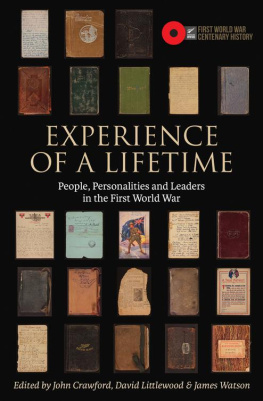
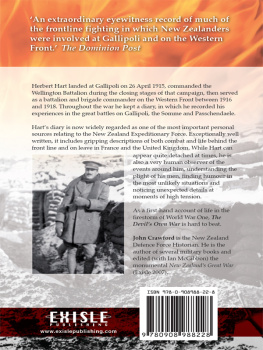
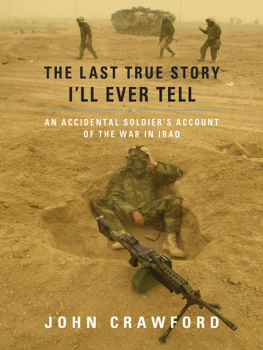
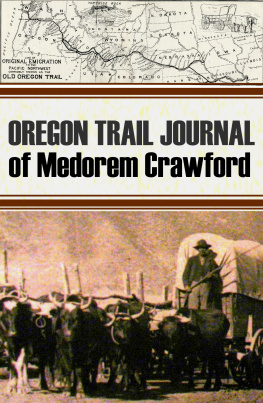
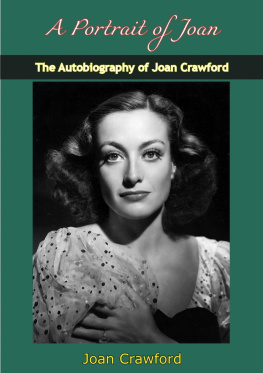




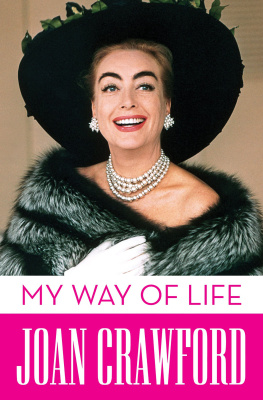
![Chris Crawford [Chris Crawford] - Chris Crawford on Game Design](/uploads/posts/book/119438/thumbs/chris-crawford-chris-crawford-chris-crawford-on.jpg)